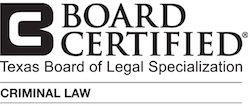Texas Implied Consent Laws
Texas Implied Consent Driving Laws
Although most states have their own laws and court procedures, most states do some things the same. One of these commonalities involves Driving While Intoxicated, also known as DWI. When you are pulled over and are found to have been accused of Driving While Intoxicated, you will be arrested and you will have charges filed against you. What you will soon find out is that you are also going to be dealing with another case on top of the DWI charges (which is a criminal issue, everything to do with your license is civil in nature). As such, everything to do with your privilege to drive is a civil matter, and will reflect on the ability of an individual to drive. The Administrative License Revocation case will be a case if you wish to contest the revoking of your license. This typically happens when you have either failed a breathalyzer or blood test, or you would not willingly consent to the taking of the tests.
This case will revoke all of your driving privileges temporarily. The revoked privileges will come into effect no later than 40 days after the failed or refused breath or blood tests. The driver does have the right to challenge the case and request a hearing. This must be done in writing and it must be done no later than 15 days after the day of the arrest. Otherwise, your license will be revoked automatically once it has been 40 days. The only way to avoid it is by submitting a request for a hearing. To read more about this process, please click: HERE.
To learn more about this underlying reasoning for this law, it should be noted that it is rooted in the Texas Implied Consent Statute (Section 724 of the Texas Transportation Code). The meaning behind "implied consent" this is very simple. The moment you get behind the wheel, you make an implicit agreement with the State of Texas that you will agree to take a breath or blood test in the event that you are pulled over and accused and charged with Driving While Intoxicated. If you do not allow them to test you, you will be facing the Administrative License Revocation case.
This law is also in affect for anyone in Texas who is operating watercraft. The BWI case is what is the term for Boating While Intoxicated case. If you are accused of operating a boat and you are intoxicated you must agree to take the breath or blood tests, as well, otherwise you will be facing the same punishment. For this to be valid, however, the watercraft that you are operating must have a horsepower of at least 50. Otherwise, it will not apply to you.
Despite what most people may think, you do not have the right to speak to an attorney before agreeing to take a blood or breath test, either. You must do so (or not do so) immediately when asked, and after the "DIC-24" is read following the arrest. This is something that is often confused.
Many officers are actually not educated on the fact that the drivers have a right to challenge their ALR suspension. Officers may tell you that if you do not agree to take the blood or breath test your license will be automatically revoked no matter what. Although many people feel that they are doing this on purpose, some officers are simply not educated completely in these rights. Most officers are actually instructed to take the license of anyone who is accused and charged with Driving While Intoxicated. If they do so, they will simply issue you a temporary driving permit that will allow you to drive your car until the 40th day after the arrest has passed (known as the "DIC-25"). If this is done properly the driver will receive a paper that explains what the arresting officer has done. It will also give details and proof that your license has not yet been suspended and that you can drive until the 40th day. This only applies for those who will be having their license revoked, of course. If your hearing states that your license will not be suspended, your license will be returned to you after the hearing.
Requesting an ALR hearing is also a smart choice for other reasons. Of course it will hopefully allow you to keep your driving license, but it will also allow you to defend yourself against your DWI case much more effectively. Most drivers who are charged with DWI fail to request an ALR hearing simply because they are not aware of it (and if they are made aware, it is usually after the 15-day window has passed). This is why you should always consult with an attorney for any kind of criminal charge. An experienced Texas DWI Defense Attorney can guide you through the steps of requesting a hearing. You may hear from the Texas Department of Public Safety that a suspension is inevitable, but this is not the case. If you have a skilled, educated, and knowledgeable Texas DWI Defense attorney assisting you with the process, there is a very big possibility of having the suspension dropped or avoiding it altogether.
The ALR Hearing will also give your attorney the chance to question your arresting officers. They will receive a subpoena to the hearing in which they will have to attend. By allowing your attorney to do this and question the officers, you can feel more secure in your trial, especially if you are not guilty of the accused crime.
Contact Us Now
You can contact The Law Offices of Carl David Ceder at anytime for assistance at 214.702.CARL(2275) or at 469.2000.DWI(394). You can also e-mail Carl directly, at Carl@CederLaw.com; or to the office for general inquiries at Info@DFWDefenders.com. Phones should be answered 24 hours a day/7 days a week for immediate and personal assistance. E-mail messages will be responded to with 24-48 hours, depending on whether Carl is in trial.




















